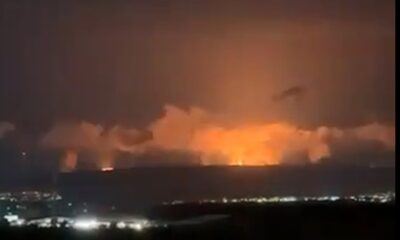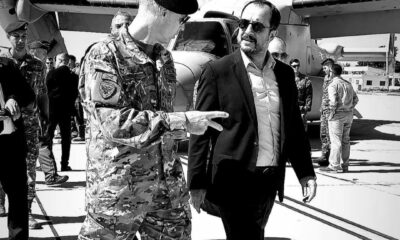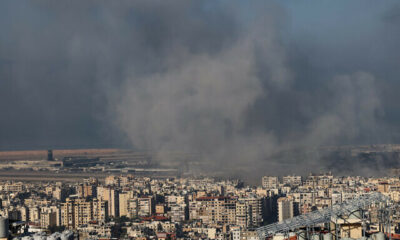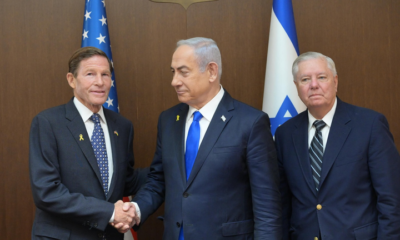ΗΠΑ
Netanyahu’s Bloody Calculations
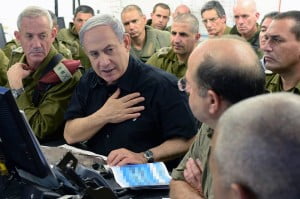
 As the Israeli killing of Palestinians spreads from Gaza to the
As the Israeli killing of Palestinians spreads from Gaza to theWest Bank, Prime Minister Netanyahu weighs his pursuit of military
objectives against growing world outrage. But his trump card remains the
fear of U.S. politicians to voice any criticism of Israel, as ex-CIA
analyst Paul R. Pillar notes.
Anyone who reads about the carnage in the Gaza Strip and has at least
an ounce of humanity is hoping that a ceasefire will come soon. Jodi Rudoren’s coverage in the New York Times
suggests that current calculations of the Israeli government of
Benjamin Netanyahu involve weighing the crippling of the physical
ability of Hamas to attack Israel against international condemnation of
Israel that is likely to mount as long as the Israeli operation
continues.
Those considerations are no doubt part of the Israeli government’s
thinking, but only a part and a rather tactical part at that. In
anticipating when Netanyahu and his cabinet will call a halt to the
operation, a more strategic view is required — or at least what
Netanyahu would consider strategic.
Minister Benjamin Netanyahu held a security meeting with senior Israeli
Defense Forces commanders near Gaza on July 21, 2014. (Israel
government photo)
So far Israel has sustained less condemnation than one might think,
given that its explanation for the hugely disproportionate civilian
casualties its operation has inflicted — that they are a result of
Hamas’s unprincipled hiding of its military assets among the civilians —
patently lacks credibility.
The infliction of death and destruction on the civilian population of the Gaza Strip is, as with so many other Israeli military offensives
and as with the blockade and economic strangulation of Gaza itself,
intended to reduce popular support for whatever group or government
Israel happens to be opposing.
The paucity of appropriate condemnation is due first and foremost, as always, to the political pusillanimity of American politicians of
both parties who are more concerned about not jeopardizing their
reelection chances by crossing a powerful lobby than about advancing the
long-term interests of the Israel they claim to support, let alone the
United States they are supposed to serve.
Little counterweight to this perpetual tendency is coming from
European leaders, who are disinclined to sanction Israel at a moment
when they are preoccupied with the latest turn in the Ukraine crisis and
have economic reasons to be disinclined to do much about sanctioning Russia.
There will be a ceasefire after this round of fighting, as there has
been after previous Israeli operations in the Gaza Strip. Maybe a
ceasefire is a week or so away, which would make Operation Protective
Edge about as long as Operation Cast Lead in 2008-2009, in which some
1,400 Palestinians died. Netanyahu does not want to keep mauling Gaza
indefinitely, not only because of direct human costs to Israel (which so
far consist — quite unlike the far greater Palestinian casualties —
almost entirely of soldiers engaged in offensive operations) but also
because he does not want to destroy Hamas.
Netanyahu needs Hamas. Netanyahu may be blind to how his policies
endanger Israel’s long-term interests, but he is staunchly committed to
the medium-term objective of retaining the West Bank. Having Hamas
around as a hated, continually invoked reason never to get serious about
negotiating a comprehensive settlement with the Palestinians serves
that objective.
As the sequence of events preceding the current round of violence
makes clear, Netanyahu saw as the biggest threat to that strategy the
reconciliation agreement between Hamas and Fatah, the dominant party in
the Palestinian Authority. If the agreement held, excuses for not being
serious about negotiating a comprehensive peace agreement and
establishing a Palestinian state to replace the occupation would become
too flimsy to maintain.
So Netanyahu did everything he could to destroy the reconciliation,
including the mass round-ups of Hamas members and other applications of
force that led almost inevitably to the onslaught that followed.
Netanyahu was aided and abetted in that strategy by the U.S.-led West, which accordingly shares responsibility for the bloodshed that has ensued.
Now Netanyahu’s government can continue to make all the familiar
claims about how Israel doesn’t have a negotiating partner, how half of
the Palestinians are ruled by a terrorist group supposedly dedicated to
the destruction of Israel, how rockets coming from Gaza show how Israel
can never risk ending occupation of the West Bank, etc. etc.
He also can say that Hamas is resisting a ceasefire. Hamas deserves
strong criticism for fighting on even when it knows this means the
possibility of casualties among innocent Israeli civilians as well as
the certainty that significantly more Palestinian civilians will die
from Israeli bombs and gunfire. Sometimes it appears that the group
forgets there are more important things than its objective of having
political power over all Palestinians. But the response by Hamas
certainly is not surprising.
The Israeli government has succeeded in structuring the situation
such that Hamas figures it has nothing to lose by continuing to fight,
because it has nothing to gain from not fighting. It tried the peaceful
route, by observing a ceasefire in the year and half since the previous
ceasefire despite Israeli violations, and by surrendering much of its
political power through the reconciliation pact, in which it agreed to
support a Palestinian government with no Hamas members and with a
commitment to negotiating a peace agreement with Israel. Netanyahu made
sure Hamas got no payoff whatsoever for following the peaceful route,
and instead paid a price for it.
All that Hamas can now see as in its immediate interests is to try to
bolster its popular support and credibility by, as a first choice,
holding out for some relief to Gazans from their status as inmates in
what amounts to an open-air detention camp. Haunting that pursuit,
however, will be the knowledge that after the deal Hamas struck with
Israel in November 2012, the ceasefire that was called for did take
hold, but the easing of the Israeli blockade of Gaza that also was
supposed to occur largely did not — another example of an Israeli
disincentive to Hamas to negotiate peacefully.
Beyond that is an interest in getting Israel to observe the prisoner
exchange deal that it violated by re-arresting hundreds of former
prisoners. And if all that fails, there at least is whatever catharsis
comes from futile whacks at Israel with a few more rockets or some
fighters sneaking through tunnels. The more death and destruction that
Israel inflicts on the Gaza Strip, the stronger will be the popular
desire for catharsis and revenge.
Unless the underlying issues are addressed, the next ceasefire will
not stop this tragic cycle. The stage will be set for another round,
when Israel will mow the lawn again. Absent regime change in Israel, the
cycle will continue until and unless political leaders in the U.S.-led
West summon political courage they have not displayed and acknowledge
that the objectives the current Israeli government is pursuing are not
in their own country’s interests, or even in Israel’s.
Paul R. Pillar, in his 28 years at the Central Intelligence
Agency, rose to be one of the agency’s top analysts. He is now a
visiting professor at Georgetown University for security studies. (This
article first appeared as a blog post at The National Interest’s Web site. Reprinted with author’s permission.)
http://consortiumnews.com/2014/07/26/netanyahus-bloody-calculations/

ΗΠΑ
Παράπονα Τραμπ για τους Αμερικανοεβραίους! Τους στήριξα και δεν με στηρίζουν – “Μπλέξιμο” με Ισραήλ
Ο Τραμπ έχει επανειλημμένα καταφερθεί κατά των Αμερικανοεβραίων επειδή δεν τον υποστήριξαν περισσότερο και είπε τον περασμένο μήνα ότι οι Εβραίοι θα έχουν πολλές ευθύνες αν χάσει τον Νοέμβριο.

Ο πρώην πρόεδρος των ΗΠΑ Ντόναλντ Τραμπ λέει στον συντηρητικό ραδιοφωνικό παρουσιαστή Hugh Hewitt: «Το Ισραήλ πρέπει να κάνει ένα πράγμα. Πρέπει να είναι έξυπνοι για τον Τραμπ. Γιατί δεν με στηρίζουν. Έκανα περισσότερα από οποιονδήποτε για το Ισραήλ, έκανα περισσότερα από οποιονδήποτε για τον εβραϊκό λαό. Και δεν είναι αμοιβαίο, όπως λένε».
Δεν είναι σαφές εάν ο Ρεπουμπλικανός υποψήφιος για την προεδρία ήθελε να πει «Αμερικανοί Εβραίοι» αντί για «Ισραήλ» στην πρώτη φράση, αλλά συχνά συγχέει τα δύο και οδηγεί σε κατηγορίες ότι χρησιμοποιεί αντισημιτικά ρητορική.
Ο Τραμπ έχει επανειλημμένα καταφερθεί κατά των Αμερικανοεβραίων επειδή δεν τον υποστήριξαν περισσότερο και είπε τον περασμένο μήνα ότι οι Εβραίοι θα έχουν πολλές ευθύνες αν χάσει τον Νοέμβριο. Αλλά συνήθως δεν ισχυρίζεται ότι το Ισραήλ δεν τον υποστηρίζει, και μάλιστα μερικές φορές επικαλείται δημοσκόπηση που δείχνει ότι οι Ισραηλινοί τον υποστηρίζουν σε πολύ υψηλά νούμερα.
ΗΠΑ
The American Conservative: Απέτυχε ο πόλεμος των ΗΠΑ στην Ουκρανία! Εξαντλήθηκαν τα αποθέματα όπλων
Η πολιτική της αμερικανικής ηγεσίας σχετικά με την ουκρανική κρίση οδήγησε στην εξάντληση των αποθεμάτων όπλων στις Ηνωμένες Πολιτείες και συνέβαλε στην απόκτηση «πλούσιας εμπειρίας από τη Ρωσία στην καταστροφή πολυάριθμων αμερικανικών οπλικών συστημάτων από άρματα μάχης Abrams έως βλήματα πυροβολικού ακριβείας Excalibur.»

«Οι προσπάθειες της Αμερικής να διεξαγάγει έναν πόλεμο αντιπροσώπων στην Ουκρανία πλησιάζουν αργά αλλά σταθερά σε αποτυχία» τόνισε ο αρθρογράφος του περιοδικού The American Conservative Zachary Yost.
Σύμφωνα με τον εμπειρογνώμονα, η πολιτική της αμερικανικής ηγεσίας σχετικά με την ουκρανική κρίση οδήγησε στην εξάντληση των αποθεμάτων όπλων στις Ηνωμένες Πολιτείες και συνέβαλε στην απόκτηση «πλούσιας εμπειρίας από τη Ρωσία στην καταστροφή πολυάριθμων αμερικανικών οπλικών συστημάτων από άρματα μάχης Abrams έως βλήματα πυροβολικού ακριβείας Excalibur.»
Ο αναλυτής πιστεύει ότι με τη διάθεση σημαντικών πόρων για τη χρηματοδότηση του καθεστώτος του Κιέβου, η Ουάσιγκτον ξεχνά τα δικά της προβλήματα ασφαλείας.
«Ο στρατός των ΗΠΑ περιορίζεται όχι μόνο από την έλλειψη εξοπλισμού, αλλά και από την έλλειψη ανθρώπων».
«Η στρατολόγηση έχει καταρρεύσει, με τεράστια ελλείμματα εδώ και αρκετά χρόνια και η κατάσταση είναι απίθανο να βελτιωθεί σύντομα”
Από το 2022, η Ουάσιγκτον δηλώνει την ακλόνητη υποστήριξή της στο Κίεβο, μεταξύ άλλων με όπλα.
Οι Ηνωμένες Πολιτείες επεκτείνουν συνεχώς το φάσμα των προμηθειών για πολεμικές επιχειρήσεις κατά της Ρωσικής Ομοσπονδίας, συμπεριλαμβανομένων στον κατάλογο όπλων βαρέων τεθωρακισμένων οχημάτων, πυραύλων και αεροσκαφών ικανών να φέρουν πυρηνικά όπλα.
ΗΠΑ
Κυρώσεις από ΗΠΑ που στοχεύουν τη Χαμάς ανήμερα της 7ης Οκτωβρίου! Μία ΜΚΟ και ένας υπήκοος Υεμένης που ζει στην Τουρκία χρηματοδοτούσαν την οργάνωση
«Το Υπουργείο Οικονομικών θα χρησιμοποιήσει όλα τα διαθέσιμα εργαλεία που έχουμε στη διάθεσή μας για να λογοδοτήσει η Χαμάς και οι φορείς της, συμπεριλαμβανομένων εκείνων που επιδιώκουν να εκμεταλλευτούν την κατάσταση για να εξασφαλίσουν πρόσθετες πηγές εσόδων», δήλωσε η υπουργός Οικονομικών των ΗΠΑ Τζάνετ Γέλεν

Οι Ηνωμένες Πολιτείες επιβάλλουν κυρώσεις σε διεθνές δίκτυο συγκέντρωσης κεφαλαίων της Χαμάς, κατηγορώντας το ότι διαδραμάτισε κρίσιμο ρόλο στην εξωτερική συγκέντρωση χρημάτων για την παλαιστινιακή τρομοκρατική ομάδα, σε δράση για τον εορτασμό της πρώτης επετείου από τις φρικαλεότητες της τρομοκρατικής ομάδας στο Ισραήλ στις 7 Οκτωβρίου 2023.
Το Υπουργείο Οικονομικών των ΗΠΑ σε ανακοίνωσή του αναφέρει ότι επέβαλε κυρώσεις σε τρία άτομα και αυτό που αποκαλεί «ψευδή φιλανθρωπική οργάνωση», την οποία κατηγορεί ότι είναι εξέχοντες διεθνείς οικονομικοί υποστηρικτές της Χαμάς, καθώς και στην τράπεζα Al-Intaj στη Γάζα που λέει ότι είναι ελέγχεται από την ομάδα.
Στο στόχαστρο είναι επίσης ένας μακροχρόνιος υποστηρικτής της Χαμάς, ένας υπήκοος Υεμένης που ζει στην Τουρκία, και εννέα από τις επιχειρήσεις του, αναφέρει το υπουργείο Οικονομικών.
«Καθώς συμπληρώνουμε έναν χρόνο από τη βάναυση τρομοκρατική επίθεση της Χαμάς, το Υπουργείο Οικονομικών θα συνεχίσει να υποβιβάζει αμείλικτα την ικανότητα της Χαμάς και άλλων αποσταθεροποιητικών ιρανών πληρεξούσιων να χρηματοδοτούν τις επιχειρήσεις τους και να πραγματοποιούν πρόσθετες βίαιες ενέργειες», δήλωσε η υπουργός Οικονομικών Τζάνετ Γέλεν στη δήλωση.
«Το Υπουργείο Οικονομικών θα χρησιμοποιήσει όλα τα διαθέσιμα εργαλεία που έχουμε στη διάθεσή μας για να λογοδοτήσει η Χαμάς και οι φορείς της, συμπεριλαμβανομένων εκείνων που επιδιώκουν να εκμεταλλευτούν την κατάσταση για να εξασφαλίσουν πρόσθετες πηγές εσόδων».
-
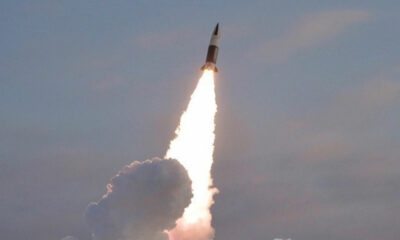
 Ιράν11 ώρες πριν
Ιράν11 ώρες πρινΚόκκινος συναγερμός στο κεντρικό Ισραήλ! Εκτοξεύτηκε βαλλιστικός πύραυλος από την Υεμένη – Αναχαιτίστηκε με επιτυχία λέει ο IDF
-
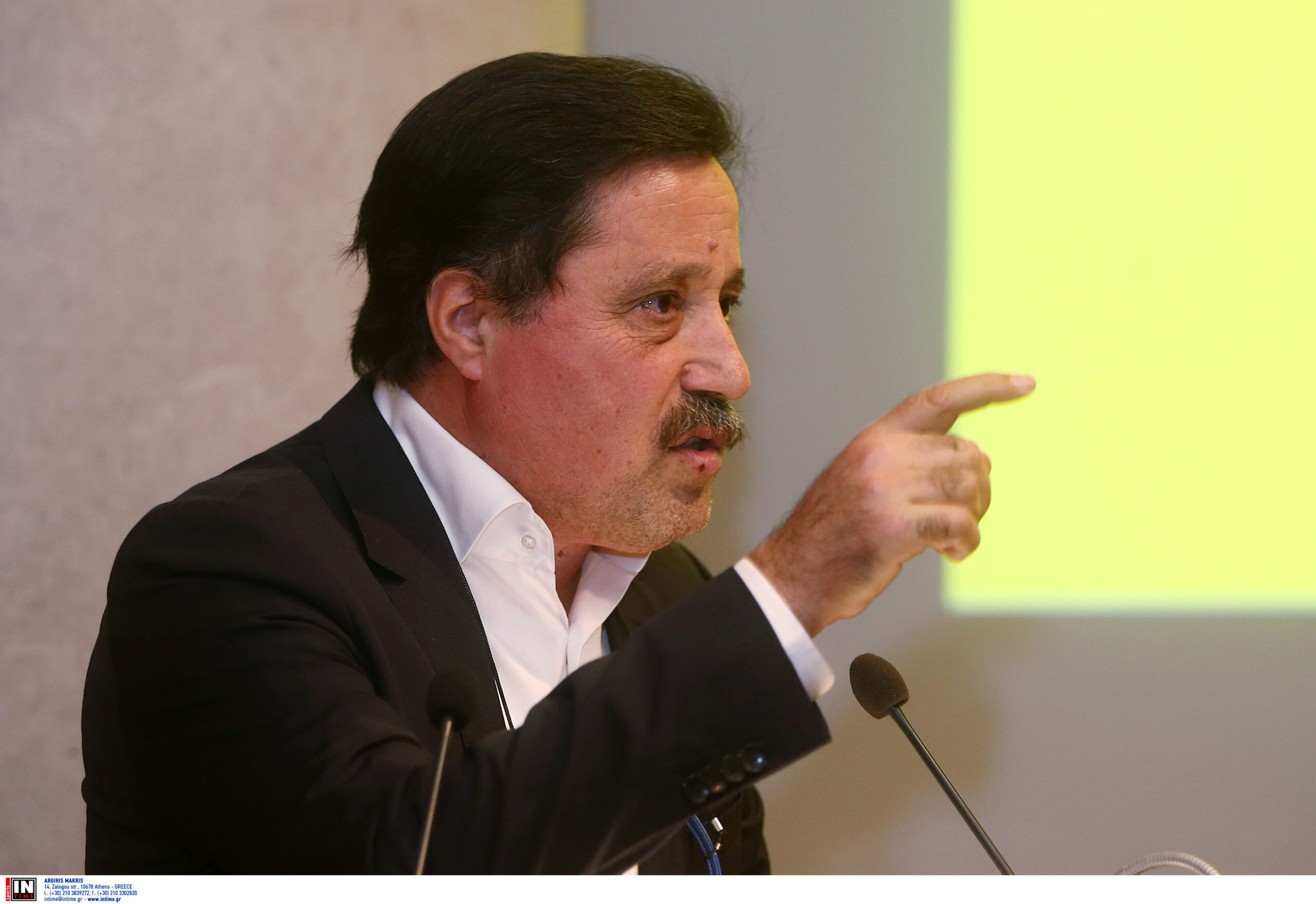
 Video15 ώρες πριν
Video15 ώρες πρινΙσραήλ: Αν χτυπήσει πυρηνικά, αρχίζει η καταστροφή
-

 Video17 ώρες πριν
Video17 ώρες πρινΑσταμάτητο το Ισραήλ! Βομβάρδισε Ρωσική βάση στην Συρία
-

 Εξωτερική Πολιτική3 ημέρες πριν
Εξωτερική Πολιτική3 ημέρες πρινΣτο επίκεντρο η ελληνοαμερικανική συνεργασία σε συνάντηση του Μητσοτάκη με Αμερικανούς γερουσιαστές στα Χανιά
-
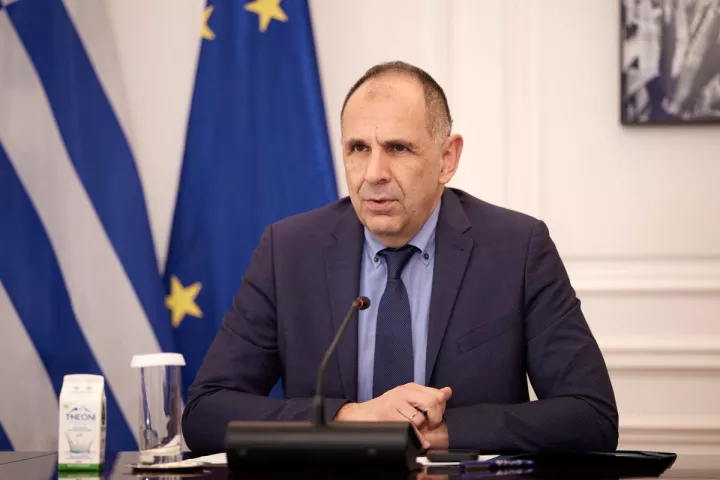
 Αναλύσεις2 ημέρες πριν
Αναλύσεις2 ημέρες πρινQuo vadis κύριε Γεραπετρίτη;
-

 Γενικά θέματα3 ημέρες πριν
Γενικά θέματα3 ημέρες πρινΜία νέα αρχή για το «Γεωπολιτικό»
-
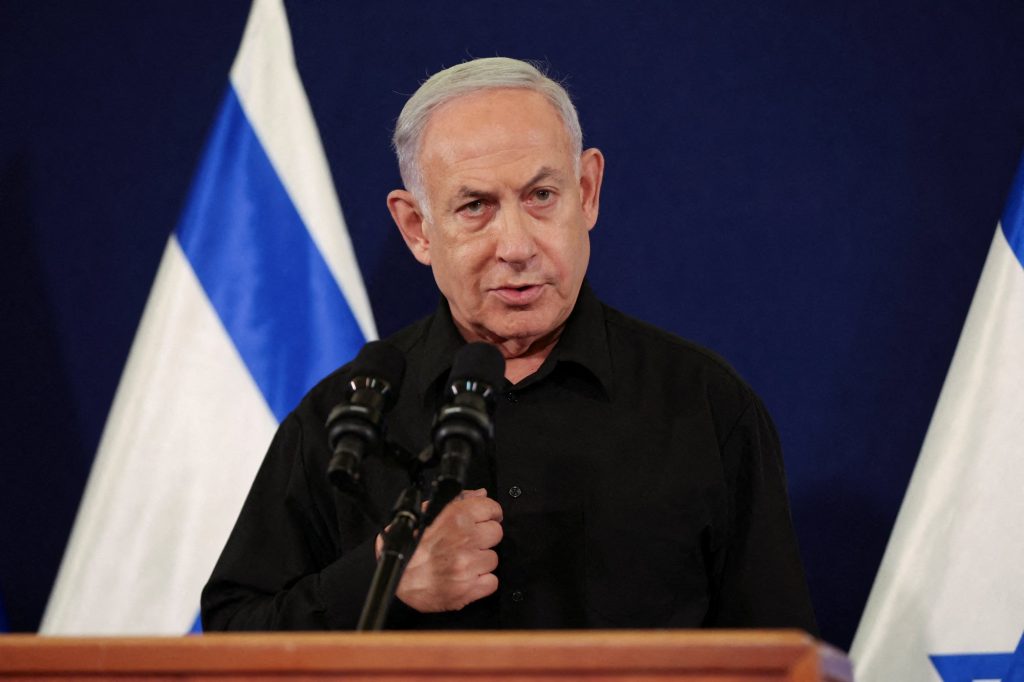
 Ιράν3 ημέρες πριν
Ιράν3 ημέρες πρινKίνηση υψηλού ρίσκου του Ισραήλ! Δεν αποκλείει χτύπημα στα πυρηνικά του Ιράν ο Νετανιάχου – Πότε θα χτυπήσει;
-

 Video20 ώρες πριν
Video20 ώρες πρινΣάββας Καλεντερίδης: Δείτε ποιοι μας κυβέρνησαν και ποιοι μας κυβερνούν!

